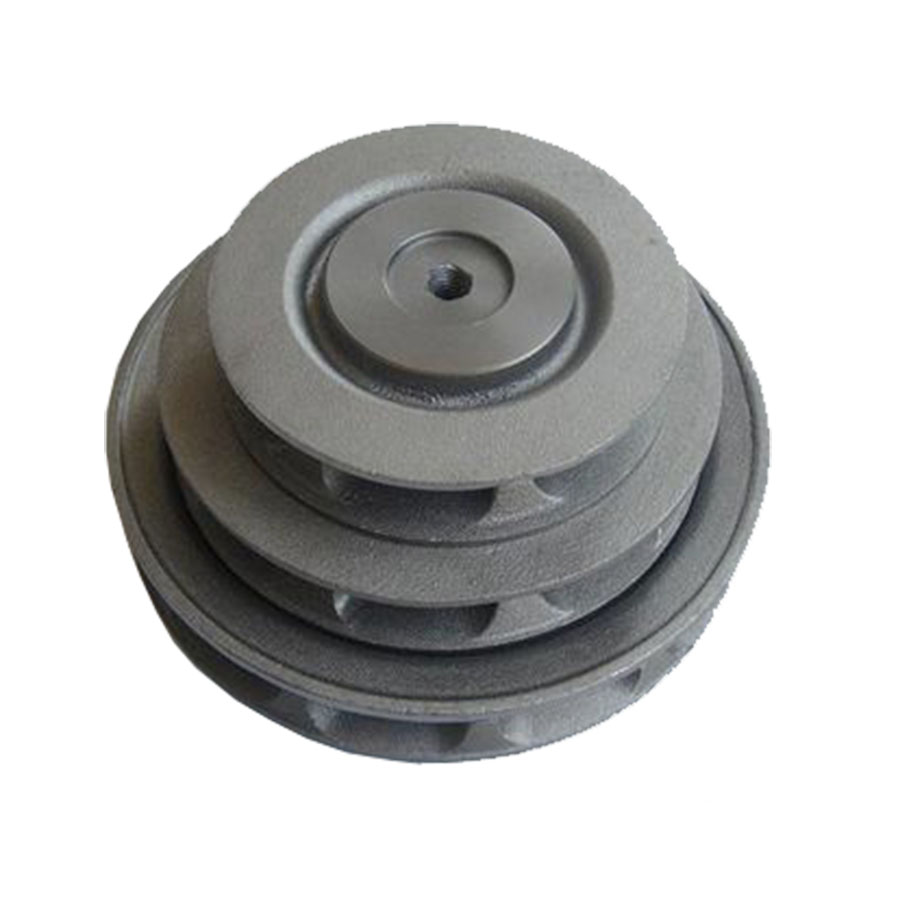
Cast Gray Iron HT250 GG-25 Sand Casting from China Casting Company
Material: HT250, GG-25 Cast Gray Iron Process: Sand Casting / Shell Mold Casting Weight: 6.56 kg Surface Treatment: Shot Blasting
Cast Gray Iron HT250 GG-25 Sand Casting from China Casting
Cast Gray Iron HT250 GG-25 Sand Casting from China Casting Company
The sand casting process offers the greatest flexibility and the most cost-effective tooling. Combined with the lastest equipment in sand casting technology and dedicated workforce, RMC are able to tackle any desired requirements. Our sand casting components are serving many industries of high demand such as oil & gas, rail trains and automotive. Cast iron is an iron-carbon cast alloy with other elements that is made by remelting pig iron, scrap, and other additions. For differentia- tion from steel and cast steel, cast iron is defined as a cast alloy with a carbon content (min 2.03%) that ensures the solidification of the final phase with a eutectic transformation. Depending on chemical specifications, cast irons can be non- alloyed or alloyed. The range of alloyed irons is much wider, and they contain either higher amounts of common components, such as silicon and manganese, or special additions, such as nickel, chromium, aluminum, molybdenum, tungsten, copper, vana- dium, titanium, plus others. Generally speaking, the cast iron could be divided into gray iron, ducitle iron (nodular iron), white cast iron, compacted graphite iron and malleable cast iron.
| Mechanical Properties of Cast Gray Iron | ||||||
| Tensile Strength of Separately Cast Samples of Gray Cast Irons | ||||||
| Material Designation | HT100 | HT150 | HT200 | HT250 | HT300 | HT350 |
| Equivalent Materials | GG-10, EN-GJL-100 | GG-15, EN-GJL-150 | GG-20, EN-GJL-200 | GG-25, EN-GJL-250 | GG-30, EN-GJL-300 | GG-35, EN-GJL-350 |
| Tensile Strength (MPa) | ≥100 | ≥150 | ≥200 | ≥250 | ≥300 | ≥350 |
▶ Raw Materials Available for Sand Casting Foundry at RMC:
• Gray Iron: HT150, HT200, HT250, HT300, HT350; GJL-100, GJL-150, GJL-200, GJL-250, GJL-300, GJL-350; GG10~GG40.
• Ductile Iron or Nodular Iron: GGG40, GGG50, GGG60, GGG70, GGG80; GJS-400-18, GJS-40-15, GJS-450-10, GJS-500-7, GJS-600-3, GJS-700-2, GJS-800-2; QT400-18, QT450-10, QT500-7, QT600-3, QT700-2, QT800-2;
• White iron, compacted graphite iron and malleable iron.
• Aluminium and Their Alloys
• Brass, Red Copper, Bronze or other Copper-based metals
• Other Materials as per your unique requirements or according to ASTM, SAE, AISI, ACI, DIN, EN, ISO, and GB standards
▶ Design and Development of Sand Casting Toolings and Patterns
We invite our customer to involve the design and development of the toolings and petterns at the first beginning. Our rich-experienced engineers could support you from an initial idea to serial production with there expert knowledge of real manufacturing and material analysis including chemical composition and mechanical properties. Our engineering team will convert any of development to a lean and production-friendly design taking into our full process production chain. At our pattern and tools shop, our experienced pattern makers and technicans could use the 2D drawings and 3D models for the tooling / pattern development. If possible, the traditional way of making is also considered. Our experts could also support you in making 3D models as per your rough idea or 2D drawings, if you need.
When we design the toolings/patters and the production procedure of the sand casting, we always think about the following main factors:
• Lower weight to reduce your costs.
• Accurate dimension to reduce or no need for machining.
• Easy to install with other components.
• Suitable materials to meet the requirements of mechanical properties but control the whole costs.
• Be conductive to mass production.
• Environment-friendly.
▶ Metallurgy, Chemical Composition and Mechanical Properties of the Material
The foundry at RMC is equipped with a complete metallurgical laboratory to determin the chemical and mechanical characteristics of each melt and to analyse the metallurgic condition of the molten metal before pouring. Microsections are examined under the microscope to obtain final information. If possible or needed, we can issure 3.1 Certificate for each delivery part on customers' demand.
▶ Capabilities of Sand Casting moulded by hand:
• Max Size: 1,500 mm × 1000 mm × 500 mm
• Weight Range: 0.5 kg - 500 kg
• Annual Capacity: 5,000 tons - 6,000 tons
• Tolerances: On Request or Standard (ISO8062-2013 or Chinese Standard GB/T 6414-1999)
• Mold Materials: Green Sand Casting, Shell Mold Sand Casting.
▶ Capabilities of Sand Casting by Automatic Molding Machines:
• Max Size: 1,000 mm × 800 mm × 500 mm
• Weight Range: 0.5 kg - 500 kg
• Annual Capacity: 8,000 tons - 10,000 tons
• Tolerances: On Request or According to Standard (ISO8062-2013 or Chinese Standard GB/T 6414-1999)
• Mold Materials: Green Sand Casting, Resin Coated Sand Shell Molding Casting.
▶ Main Production Procedure
• Patterns & Tooling Design → Making Patterns → Moulding Process → Chemical Composition Analysis → Melting & Pouring → Cleaning, Grinding & Shot Blasting → Post Processing or Packing for Shipment
▶ Sand Casting Inspection Capabilities
• Spectrographic and manual quantitative analysis
• Metallographic analysis
• Brinell, Rockwell and Vickers hardness inspection
• Mechanical property analysis
• Low and normal temperature impact testing
• Cleanliness inspection
• UT, MT and RT inspection
Quick Links:
Sand Casting | Investment Casting | CNC Machining | Lost Foam Casting | Vacuum Casting | Get a Quote
 русский
русский



